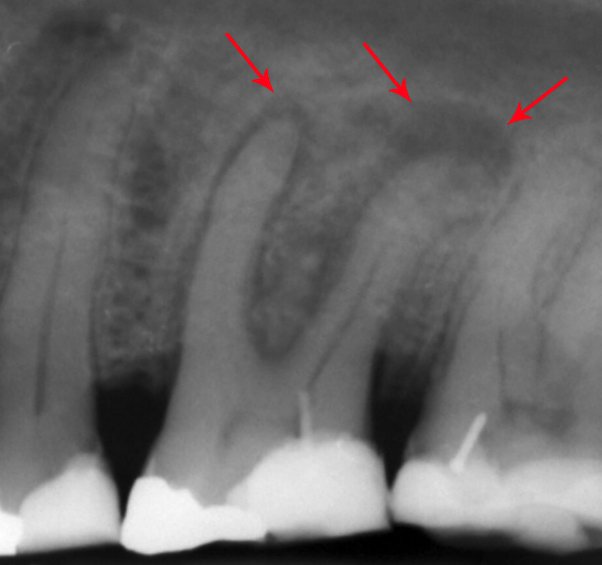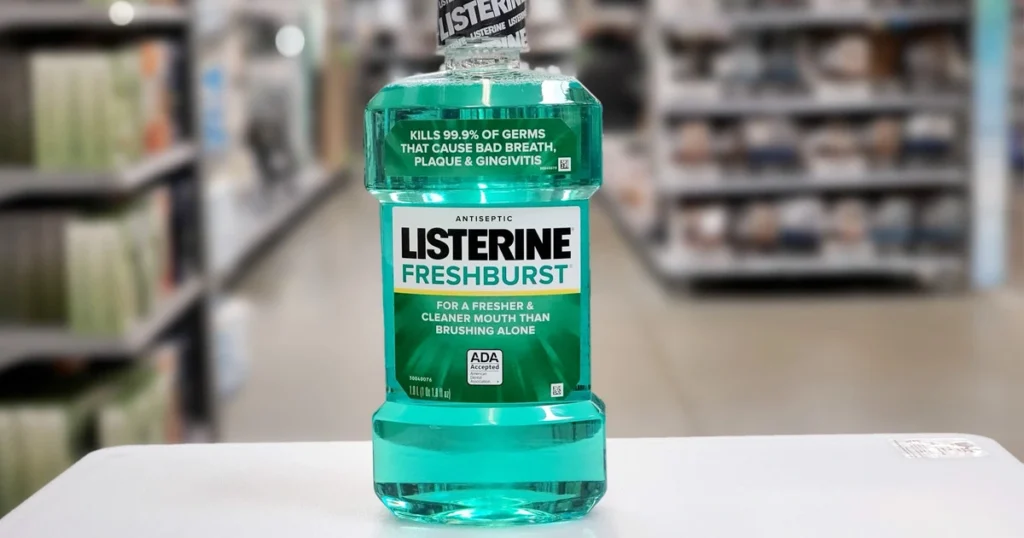A captivating, bright smile is undeniably one of the most cherished human features. However, lurking beneath the surface of those pearly whites can be a hidden and potentially harmful condition: tooth infections.
Tooth infections are a painful and potentially dangerous problem. If left untreated, they can lead to serious complications and even life-threatening conditions.
There are numerous home remedies, over-the-counter medications, and professional treatments that can help to alleviate the pain and cure a tooth infection. However, a simple and common home remedy that people often ask is Listerine. This antiseptic mouthwash brand has been in existence in 1879 and is widely used to freshen one’s breath and fight off bacteria. However, can Listerine kill a tooth infection, or is it merely a temporary fix?’
Listerine does not kill a tooth infection. However, its antiseptic properties makes it effective in eliminating harmful bacteria and alleviating symptoms of a tooth infection. The same is said for oil pulling and saltwater rinses; it does not kill bacteria but rather, it removes bacteria from the crevasses in the mouth.
In the rest of this article, we will take a closer look at the causes of tooth infection, explore how Listerine works, and whether it can be an effective treatment for tooth infections. So let’s dive in!
What Causes Tooth Infection?
Tooth infections, also known as dental abscesses, are typically caused by bacterial infections that originate in the tooth or the surrounding gum tissue. The most common bacteria that cause dental abscesses are Streptococcus and Staphylococcus species. These bacteria enter the tooth through a cavity, crack, or damage to the tooth enamel. Once penetrated, the bacteria can reach the inner pulp of the tooth, multiply, and cause serious inflammation and pain.
A tooth infection can also be caused by gum diseases such as gingivitis and periodontitis. When gum disease is present, the gums can become inflamed and pull away from the teeth, creating pockets of space where bacteria can accumulate. This can lead to an infection in the root of the tooth, known as a periapical abscess.

Last but not least, trauma to the tooth can also cause lead to an infection of the tooth. If the tooth is cracked or broken due to an injury, the damaged tooth structure can lead to an interruption of the blood supply to the tooth pulp. This will lead to the death of the pulp and a subsequent bacterial infection.
It should be noted that people with a weakened immune system, such as those with HIV/AIDS, diabetes, or cancer, may be more susceptible to tooth infections. Other factors that can increase the risk of tooth infections include poor dental hygiene, a diet high in sugar and starches, and smoking.
Now that you are aware of the causes of tooth infection, the next step in seeking out the answer is to understand the makeup of Listerine and its benefits.
What Are the Ingredients in Listerine?
The formula of Listerina has undergone several iterations over the past 100 years. Today, it contains a host of active ingredients designed to work together to help kill bacteria and freshen the breath. Here are some of the main ingredients commonly found in a Listerine mouthwash:
- Eucalyptol: Derived from eucalyptus oil, eucalyptol is a natural essential oil that has antiseptic and anti-inflammatory properties. It helps to kill bacteria in the mouth and reduce inflammation in the gums.
- Menthol: It is a compound derived from mint and helps to provide a cooling sensation and freshen the breath. It is menthol that gives Listerine its iconic minty flavor.
- Thymol: It is a natural essential oil derived from thyme oil. Thymol is a power antiseptic and antimicrobial agent that helps to control bacterial growth and reduce the buildup of plaque on the teeth.
- Methyl salicylate: A derivative of salicylic acid, methyl salicylate has analgesic and anti-inflammatory properties. It helps to soothe sore gums and reduce pain associated with oral infections.
- Ethanol: Alcohol is widely used in mouthwash as a preservative and a solvent. This extends the shelf life of mouthwash products while allowing other active ingredients to dissolve in it. Additionally, alcohol has antimicrobial properties, which kills bacteria and reduces the chances of gum disease.
Other ingredients used in the formulation of Listerine mouthwash include water, flavoring agents, sodium benzoate, and fluoride. Literine offers many different types of mouthwash, including alcohol-free and specialized variants, which contains different ingredients of varying composition to tailor to specific oral health needs.
Why Listerine Doesn’t Kill Tooth Infection?
As mentioned, Listerine contains antimicrobial properties that can kill bacteria in the mouth. However, in spite of its active ingredients and antiseptic properties, Listerine is not an effective treatment for a tooth infection.
Tooth infection are largely caused by bacteria growth within the dental pulp of the tooth. This is well-protected by the tooth enamel and dentin, making it difficult for Listerine to penetrate these layer and eliminate bacteria in the pulp.
You may be interested in: Does Flossing Actually Whiten Your Teeth?
Also, tooth infection can also be the result of dental conditions which cannot be resolved by Listerine. For instance, Listerine cannot treat tooth decay, repair damaged teeth, or replace a failed dental work. It is imperative that the source of the tooth infection be eliminated to prevent it from recurring and causing more damage.
Lastly, most tooth infection require a multi-pronged approach to effectively eliminate the problem. This may include antibiotics to kill specific bacteria, dental treatments like root canal to remove infected tissue, and consistent oral hygiene habit to prevent recurrence. In the case of a severe tooth infection, an extraction of the infected tooth is necessary. Listerine, or any mouthwash products in the market cannot provide the level of treatment and kill a tooth infection.
How to Kill Tooth Infection?
If Listerine does not kill a tooth infection, what will do the job?
First of all, one should know that most mouthwash or oral rinse solution will not kill the tooth infection. Instead, it removes harmful bacteria and relieves any pain that you may be suffering from.
To kill the infection, visit your dentist to get antibiotics. This can help to prevent the infection from spreading to other parts such as the neighbouring teeth or jaw. This is recommended especially if you have a weak immune system.
Secondly, it is to remove the cause of the infection. This can be done via a root canal or a tooth extraction. A root canal involves drilling into the infected tooth and draining any abscess that may be causing the infection. The tooth is then filled with a biocompatible material and sealed. If the tooth cannot be saved, your dentist will extract the tooth to remove the cause of the infection once and for all.
Takeaway
Despite its well-documented antiseptic properties and numerous benefits for oral health, Listerine is not a suitable treatment for tooth infections. Tooth infections require more aggressive treatment, such as antibiotics and dental procedures like a root canal, to eliminate the infection.
This doesn’t mean that Listerine doesn’t have a role to play in treating the symptoms and maintaining oral health; Listerine work well to relieve the pain, reduce the buildup of plaque, and freshen one’s breath. However, it is essential to know that Listerine, or any mouthwash, does not cure the underlying infection, nor is it a substitute for proper oral care.
Any delays to professional treatment may result to more severe problems and even tooth loss. As such, it is is imperative that you seek prompt treatment from a dentist or oral surgeon if you suspect that you are suffering from a tooth infection.







